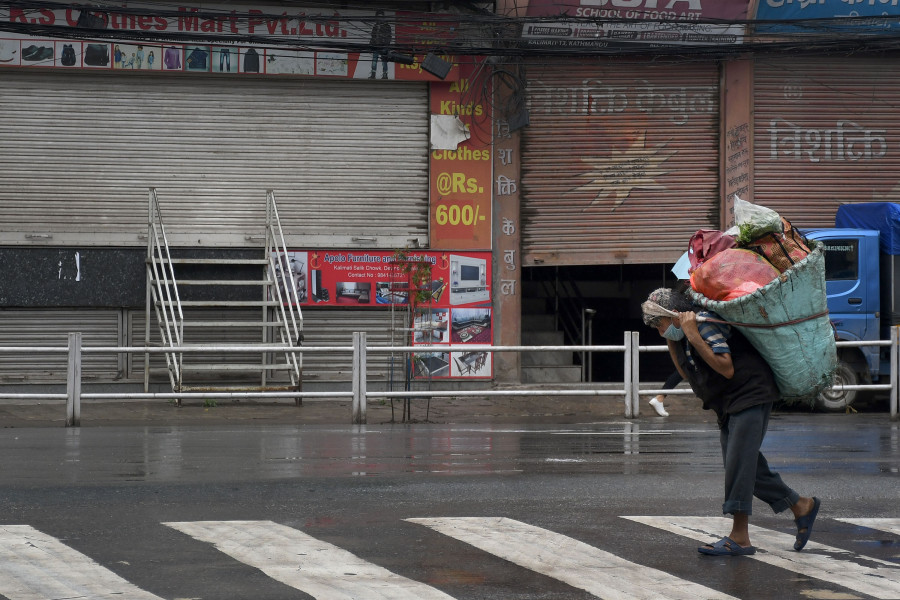Editorial
What about the poor?
Officials cannot continue to evade responsibility even as people go to bed hungry.
As expected, the prohibitory orders in the Kathmandu Valley have been renewed for a week until June 3. A meeting of the chief district officers of the three valley districts decided to enforce an even stricter restriction, including halting all construction work, limiting the operating time of grocery shops, and asking people to stock up on food grain for a week. While 12 dozen fully inoculated ex-parliamentarians are crowding the portico of the Supreme Court, administrators have announced a near-complete ban on public mobility. The administrators have also announced various fines, ranging from Rs100 to Rs500,000 and jail time for those violating the restrictions.
In theory, we should all stay indoors. Not only do we risk getting infected with the coronavirus, we also risk transmitting it to others if we are infected. Moreover, the dilapidated health system and the increasing unavailability of cremation ghats mean that it is best for all of us to stay inside and wage a non-cooperation movement against the virus. Practicality, though, is a different thing altogether. Social media freaks are not posting pictures of Dalgona coffee and similar culinary experiments this time. Why? Because the people are not only freaked out by the intensity of deaths and hospitalisations around them this time, but are also sensible enough not to continue posting pictures of food and merrymaking when the country is going through a crisis.
But authorities are a different breed altogether, it seems. They survive on the taxpayer’s hard-earned money, but fail to understand that the poor and the marginalised do not have the means to stockpile food grain for a week. They receive monthly salaries on time, but fail to understand that daily wage labourers sustain themselves for just the day they work, and that they have to go to bed hungry on the day they fail to get work. The pandemic has already devastated the purchasing power of the public. They have been hit hard by the hike in vegetable and grain prices owing to disruption in the market. Not that the prices were put under check earlier anyway as the private sector runs a near monopoly in the distribution chain. But the pandemic has been particularly punishing for the poor, for they have lost their means of income altogether.
Moreover, it is important to ask not only how the poor are living from hand to mouth, but also whether they are being compelled to spend all their earnings on food, leaving them vulnerable in case of an emergency. Although we never had robust public distribution, the government could have done much more in the past year to ensure that those at the rock bottom of the class hierarchy, who have been hit the hardest by the coronavirus crisis, received enough support from the state to manage two square meals a day. But no, they have hardly bothered to care for the common people.
There is much more officials can do to ensure that their decisions do not push the poor to the edge yet again. They do not need to be told time and again what they have to do, for they know the technical details already. All they need now is the capacity to empathise with the poor and the downtrodden in this time of crisis, and act accordingly. While some generous individuals and institutions are sending help in the form of food, medicines or money to complete strangers in need, government officials cannot continue to evade responsibility.




 13.12°C Kathmandu
13.12°C Kathmandu














